I map spatial data onto a one dimensional interval. First I use a space filling Lebesgue curve (or Z curve) in order to connect my points. This works and I get the following plot if I use gnuplot:
Then I want to transform the Lebesgue curve to a Hilbert curve. But it does not work. This is the output:
So it seems to work at the beginning. But after a while strange things happen and I don't know why.
Here is my code:
#include <stdio.h>
#include <stdlib.h>
#include <math.h>
#include <string.h>
#include <limits.h>
#include <stdint.h>
#define DIM 2
// direction of hilbert curve
const unsigned char DirTable[4][4] =
{{1,2,0,0},{0,1,3,1},{2,0,2,3},{3,3,1,2}};
// Map z-order to hilbert curve
const unsigned char HilbertTable[4][4] =
{{0,3,1,2},{0,1,3,2},{2,3,1,0},{2,1,3,0}};
unsigned int Lebesgue2Hilbert(unsigned int lebesgue){
unsigned int hilbert = 1;
int level = 0;
int dir = 0;
for(unsigned int tmp=lebesgue; tmp>1; tmp>>=DIM, level++);
for(; level>0; level--){
int cell = (lebesgue >> ((level-1)*DIM)) & ((1<<DIM)-1);
hilbert = (hilbert<<DIM) + HilbertTable[dir][cell];
dir = DirTable[dir][cell];
}
return hilbert;
}
unsigned int Part1By1(unsigned int x)
{
x &= 0x0000ffff;
x = (x ^ (x << 8)) & 0x00ff00ff;
x = (x ^ (x << 4)) & 0x0f0f0f0f;
x = (x ^ (x << 2)) & 0x33333333;
x = (x ^ (x << 1)) & 0x55555555;
return x;
}
unsigned int EncodeMorton2(unsigned int x, unsigned int y)
{
return (Part1By1(y) << 1) + Part1By1(x);
}
struct sortKey{
int idx;
int key;
};
int compare (const void * a, const void * b)
{
return ( (*(struct sortKey*)b).key - (*(struct sortKey*)a).key );
}
int uniform_distribution(int rangeLow, int rangeHigh) {
double myRand = rand()/(1.0 + RAND_MAX);
int range = rangeHigh - rangeLow + 1;
int myRand_scaled = (myRand * range) + rangeLow;
return myRand_scaled;
}
int main (int argc, char **argv){
srand(time(NULL));
int n = 20;
int N = n*n;
// Uniform distribution
unsigned int pospar[DIM*N];
int k = 0;
for(unsigned int i=0; i<n; i++){
for(unsigned int j=0; j<n; j++){
pospar[DIM*k] = i;
pospar[DIM*k+1] = j;
k++;
}
}
// Lebesgue curve
unsigned int lkey[N];
for(int i=0; i<N; i++){
lkey[i] = EncodeMorton2(pospar[i*DIM+0],pospar[i*DIM+1]);
// printf("Lkey: %d\n", lkey[i]);
}
// Hilbert curve
unsigned int hkey[N];
for(int i=0; i<N; i++){
hkey[i] = Lebesgue2Hilbert(lkey[i]);
}
struct sortKey sk[N];
for(int i=0;i<N; i++){
sk[i].idx = i;
sk[i].key = hkey[i]; // "lkey[i]" or "hkey[i]"
}
qsort (sk, N, sizeof(struct sortKey), compare);
for (int i=0; i<N; i++){
printf ("%d %d\n", pospar[DIM*sk[i].idx], pospar[DIM*sk[i].idx+1]);
}
return 0;
}
Does anybody see what I have missed?

